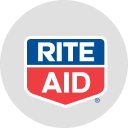
Acetaminophen Congestion/pain Coupons & Acetaminophen Congestion/pain Savings Card
generic Acetaminophen Congestion/pain
This combination medication is used to temporarily treat symptoms caused by the common cold, flu, allergies, or other breathing illnesses (such as sinusitis, bronchitis). Decongestants help relieve stuffy nose, sinus, and ear congestion symptoms. Acetaminophen (APAP) is a non-aspirin pain reliever and fever reducer. Cough-and-cold products have not been shown to be safe or effective in children younger than 6 years. Do not use this product to treat cold symptoms in children younger than 6 years unless specifically directed by the doctor. Some products (such as long-acting tablets/capsules) are not recommended for use in children younger than 12 years. Ask your doctor or pharmacist for more details about using your product safely. These products do not cure or shorten the length of the common cold and may cause serious side effects. To decrease the risk for serious side effects, carefully follow all dosage directions. Do not use this product to make a child sleepy. Do not give other cough-and-cold medication that might contain the same or similar ingredients (see also Drug Interactions section). Ask the doctor or pharmacist about other ways to relieve cough and cold symptoms (such as drinking enough fluids, using a humidifier or saline nose drops/spray).
My prescription
Edit
5-325MG, Acetaminophen Congestion/pain (30 Tablets)
Select pharmacy

Walgreens
$2.00

Rite Aid
$2.61

Kroger
$10.72
Show this card to your pharmacist This card is not insurance
This card is not insurance

Walgreens
$2.00
BIN
ID
PCN
GRP
019876
LH6201C542
CHIPPO
LHX
Powered by
Warnings
One ingredient in this product is acetaminophen. Taking too much acetaminophen may cause serious (possibly fatal) liver disease. Adults should not take more than 4000 milligrams (4 grams) of acetaminophen a day. People with liver problems and children should take less acetaminophen. Ask your doctor or pharmacist how much acetaminophen is safe to take. Do not use with any other drug containing acetaminophen without asking your doctor or pharmacist first. Acetaminophen is in many nonprescription and prescription medications (such as pain/fever drugs or cough-and-cold products). Check the labels on all your medicines to see if they contain acetaminophen, and ask your pharmacist if you are unsure. Get medical help right away if you take too much acetaminophen (overdose), even if you feel well. Overdose symptoms may include nausea, vomiting, loss of appetite, sweating, stomach/abdominal pain, extreme tiredness, yellowing eyes/skin, and dark urine Daily alcohol use, especially when combined with acetaminophen, may damage your liver. Avoid alcohol.
Side Effects
Upset stomach, nausea, dizziness, trouble sleeping, or nervousness may occur. If any of these effects last or get worse, tell your doctor or pharmacist promptly. If your doctor has prescribed this medication, remember that your doctor has judged that the benefit to you is greater than the risk of side effects. Many people using this medication do not have serious side effects. Tell your doctor right away if you have any serious side effects, including: mental/mood changes (such as confusion, hallucinations), fast/irregular heartbeat, problems urinating. A very serious allergic reaction to this drug is rare. However, get medical help right away if you notice any symptoms of a serious allergic reaction, including: rash, itching/swelling (especially of the face/tongue/throat), severe dizziness, trouble breathing. This is not a complete list of possible side effects. If you notice other effects not listed above, contact your doctor or pharmacist. In the US - Call your doctor for medical advice about side effects. You may report side effects to FDA at 1-800-FDA-1088 or at www.fda.gov/medwatch. In Canada - Call your doctor for medical advice about side effects. You may report side effects to Health Canada at 1-866-234-2345.
Interactions
Some products that may interact with this drug are: ketoconazole, levoketoconazole. Taking MAO inhibitors with this medication may cause a serious (possibly fatal) drug interaction. Avoid taking MAO inhibitors (isocarboxazid, linezolid, metaxalone, methylene blue, moclobemide, phenelzine, procarbazine, rasagiline, safinamide, selegiline, tranylcypromine) during treatment with this medication. Most MAO inhibitors should also not be taken for two weeks before treatment with this medication. Ask your doctor when to start or stop taking this medication. The ingredients in this product are available in many prescription and nonprescription products. Check the labels on all your medicines (such as pain/fever drugs, diet aids, or cold/allergy products) because they may contain the same or similar ingredients. Using these drugs along with this product could increase side effects (such as fast heartbeat or increased blood pressure). Ask your pharmacist about using those products safely. This medication may interfere with certain lab tests (such as urine 5-HIAA), possibly causing false test results. Make sure lab personnel and all your doctors know you use this drug.
